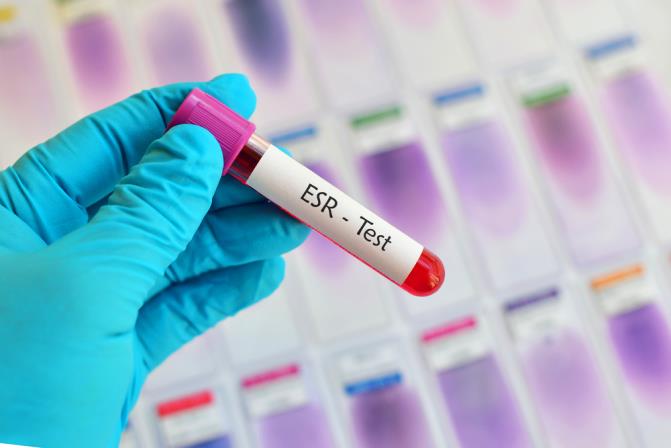ESR or erythrocyte sedimentation rate is a blood test that shows inflammation in your body. Inflammation happens when the immune system responds to infection, injury, and other conditions like immune system disorders. ESR in the blood helps us diagnose the inflammation level in our body. Additionally, it can be used to monitor inflammation causing health conditions like vasculitis, arthritis, inflammatory bowel disease, and infection. With an ESR blood test, you can monitor an existing health condition.
The ESR blood test measures how quickly the RBC or red blood cells settle at the bottom of the blood sample. ESR is not related to any specific disease. The health conditions alter the ESR levels to be low or high. ESR in the blood is a non-specific test just to diagnose the presence or absence of inflammation. Apart from the test, doctors use other clinical findings, lab tests, and the patient’s medical history to figure out the disease.
What is the ESR or erythrocyte sedimentation rate test procedure?
The ESR test procedure is simple. A doctor or a lab technician draws a sample of blood from your vein. It’s not necessary to undergo any preparation before the test. But make sure to inform your doctor regarding any medications that may affect your results.
The blood draw takes a few minutes, after which the lab technicians transfer blood into a vertical test tube. In this stage, the RBC cells slowly settle down at the bottom. After the settlement, it leaves a clear yellowish fluid at the top part, this fluid is known as blood plasma. The result is derived based on the amount of plasma at the top of the test tube after one hour.
The RBC cells settle down faster in people with inflammatory conditions. The conditions usually increase the protein in the blood and clump together to settle quickly. The individual RBC cells that settle faster will have high ESR levels.
The ESR in blood result estimation
The result estimation is done within a couple of hours. The report is given in millimeters per hour or mm/hr. The ESR normal range in males is around 1 to 13 mm/hr. Similarly, the ESR normal range in females is around 1 to 20 mm/hr. The normal ESR levels vary based on the people’s age. People who have high ESR levels outside the normal range should consult one of the best hematology hospitals.
High ESR in blood
An abnormal level of ESR is determined through ESR tests. If the RBC settles down at a faster rate, it’s due to protein sticking together. Several health conditions increase ESR levels. Most probably, the rise in levels is due to inflammation. In other cases, if the ESR level is more than 100 mm/hr, the higher levels are caused due to,
- Diabetes
- Kidney disease
- Obesity
- Rheumatic fever
- Vascular diseases
- Traumatic events
- Tissue injury
- Thyroid disease
- Autoimmune disorders like arthritis, lupus, etc.
- Few cancer types like lymphoma, leukemia, myeloma, etc.
The list varies based on the individual’s health condition, gender, and medical history. Few medicines like Vitamin A supplements, birth control pills, quinine, cortisone, methyldopa, and theophylline can also result in higher ESR levels.
High ESR symptoms
ESR levels determine any infection or disease. Some of the high ESR symptoms include,
- Loss of appetite
- Anaemia
- Fever
- Headache
- Joint or muscle pain
- Abnormal weight gain or loss
The high ESR symptoms may vary so, it’s better to consult a doctor in the best hematology hospital.
How to reduce ESR in blood?
If your ESR is too high, initially consult your doctor. Give first priority to meet an expert doctor in the hematology hospital.
Few other options can be,
- Living a healthy life with a hygienic lifestyle. So, you’re free from infections and prevent an increase in ESR levels.
- Do regular exercise to reduce inflammation
- Follow a good diet and nutrition to lower the ESR levels
- Losing weight can decrease ESR levels.
Summary
High ESR in the blood is not a prime reason for concern but in few abnormal results. It’s better to consult a doctor.
Anyway, a doctor doesn’t diagnose a medical condition with an ESR test. The result illustrates whether the body has inflammation or not. If the test has an issue, a doctor will recommend further tests to make an appropriate diagnosis.
Get your ESR test done now!

